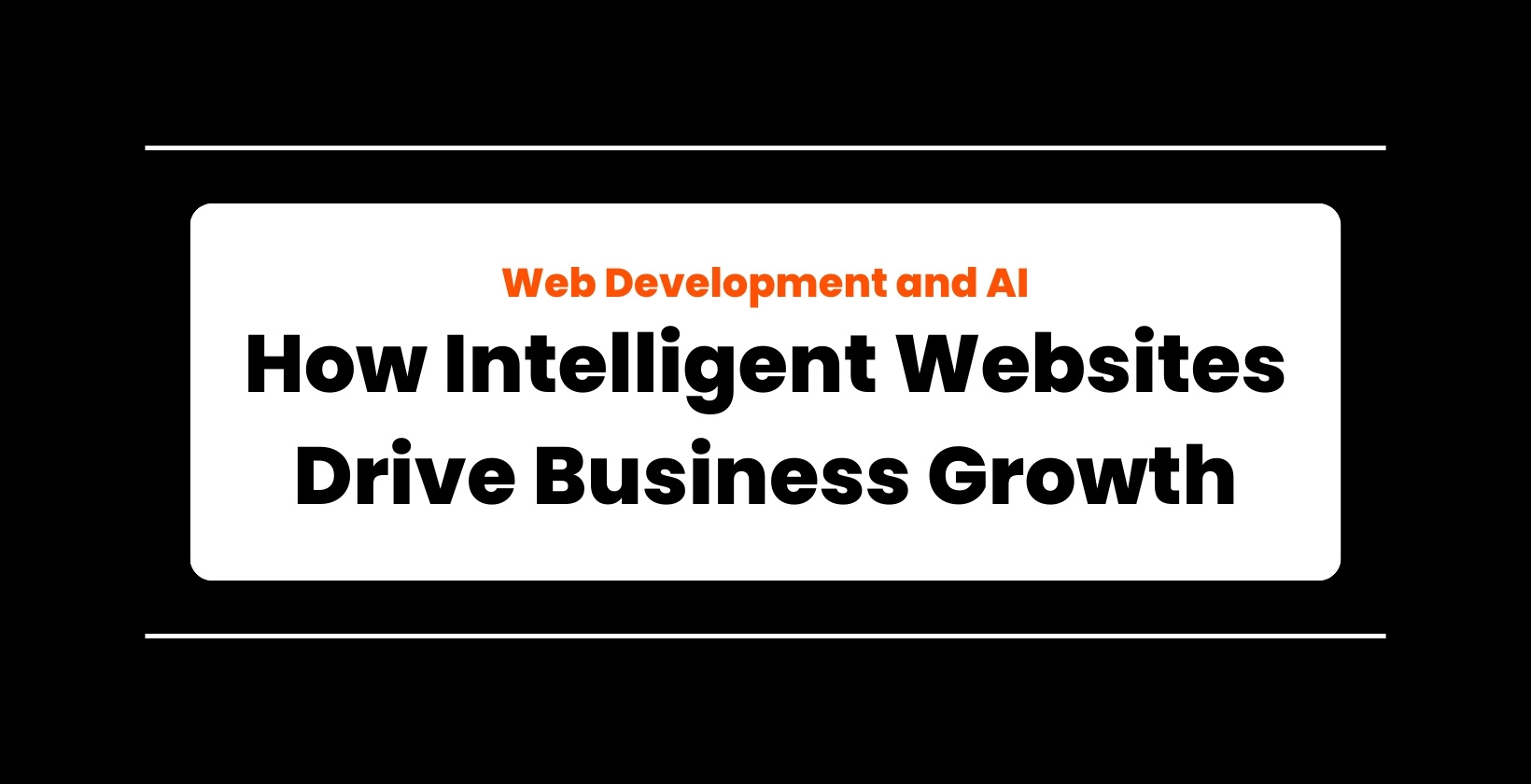Many Los Angeles businesses face a common challenge: outdated websites that fail to convert visitors into customers. Low engagement, slow performance, and static designs limit growth in a competitive digital market.
Integrating web development and AI turns a website from a static tool into a dynamic growth engine. AI-powered sites analyze user behavior in real time, personalize experiences, and automate key functions, driving measurable results. Companies that utilize AI on digital platforms report revenue gains of up to 15% in their first year.
At LAPR, we build intelligent, AI-driven websites that merge advanced technology with strategic PR insights, helping brands capture more leads, retain customers, and achieve long-term growth.
Table of Contents
ToggleWhat is AI in Web Development and How Does It Work?
AI in web development refers to the use of artificial intelligence technologies to design, build, and optimize websites that adapt to user behavior in real-time. Instead of relying solely on static code, these sites use algorithms and data analysis to make ongoing adjustments for better performance and user satisfaction.
Foundational Principles That Define AI-Driven Dynamic Websites
AI-driven dynamic websites are built on three core principles:
- Personalization: Tailoring content and offers to each visitor.
- Adaptability: Adjusting layouts and features in real time.
- Automation: Streamlining updates and testing without manual input.
For example, adaptive websites utilizing AI can increase engagement by up to 35% by delivering experiences that dynamically evolve in response to user behavior. These principles form the backbone of smarter, more responsive sites that support measurable business growth.
Key Differences Between Traditional Websites and AI-Driven Web Development
| Aspect | Traditional Websites | AI-Driven Websites |
| Development Workflow | Built through manual coding and periodic updates | Continuously refined through AI models and automated adjustments |
| Scalability | Limited growth without significant redevelopment | Expands seamlessly as AI learns and adapts |
| Personalization Capacity | Same content for all visitors | Dynamic, user-specific experiences driven by AI insights |
| Data Dependency | Relies on basic analytics for decisions | Leverages real-time data for continuous optimization |
| Performance Speed | Optimization applied at fixed intervals | Adaptive performance tuning in response to live user behavior |
| Decision-Making | Changes driven by human review cycles | Decisions made instantly through AI-driven analysis |
Most Popular AI Website Features for Better User Experience
- AI chatbots: Provide 24/7 customer support, answer queries instantly, and qualify leads.
- Predictive search: Suggest relevant results in real time to speed up navigation.
- Dynamic content personalization: Tailor text, images, and offers based on user behavior.
- Recommendation engines: Suggest products or content to increase engagement and sales.
- Automated accessibility tools: Adjust layouts, colors, and text for improved usability.
- Sentiment analysis integration: Gauge user feedback to refine messaging and design.
How AI Websites Accelerate Business Growth and Revenue
AI web development benefits go beyond design. These benefits drive measurable gains in revenue, customer retention, and efficiency. By learning from each interaction and adapting instantly, AI-powered websites refine the user journey to boost conversions, strengthen loyalty, and reduce acquisition costs.
Increasing Revenue and Improving Customer Retention with AI Websites
AI websites’ revenue growth comes from personalized product offers, churn prediction, and optimized upselling that increase customer lifetime value. For example, an e-commerce brand that utilized AI-driven recommendations increased its average order value by 18% and improved repeat purchase rates by 22% within six months.
Boosting Efficiency Through AI Automation and Data Insights in Websites
AI web automation streamlines repetitive tasks, such as A/B testing, content updates, and performance monitoring, freeing developers to focus on higher-value work. Integrated analytics dashboards provide real-time insights, enabling faster, data-driven decisions. These decisions help businesses reduce development hours by up to 40%, accelerating project timelines and enhancing overall productivity.
Scaling Customer Engagement with AI Without Raising Operational Costs
An AI customer engagement website can manage thousands of interactions at once through chatbots, predictive outreach, and tailored campaigns, without increasing staff. For example, a retail brand used AI chatbots to handle over 500 simultaneous customer chats during a sale event, maintaining rapid response times and personalized support while keeping operational costs flat.
Benefits of AI Websites for Startups, SMBs, and Enterprises
AI web development advantages scale across all business sizes, accelerating launches for startups, enabling enterprise-level personalization, and automating SMB operations.
AI Websites for Startups: Faster MVP Launch and Market Entry
AI web development startups can reduce MVP launch timelines from 12 weeks to just 4 by using automated prototyping, instant UX testing, and predictive demand validation. For example, a tech startup leveraged AI-driven workflows to rapidly design, test, and refine its platform, enabling early market entry and capturing initial revenue more quickly.
Enterprise AI Websites: Delivering Personalized Experiences at Scale
Enterprise AI websites utilize large-scale AI systems to process massive datasets, enabling personalized segmentation across geographies, languages, and customer profiles. Global brands using AI at scale have personalized experiences for millions of users simultaneously, improving engagement rates by up to 30% across diverse markets.
SMB AI Websites: Cost-Effective Automation and Customer Support
Small business AI websites utilize affordable AI platforms to automate customer service, marketing campaigns, and performance reporting, enabling lean teams to operate with the same efficiency as larger enterprises. For example, a local service provider implemented an AI chatbot and automated email workflows, resulting in a 35% reduction in support costs while improving response times.
High-Impact Use Cases of AI in Web Development for Business Growth
AI website use cases span customer support, marketing, personalization, and data-driven decision-making, each capable of delivering measurable gains in revenue, efficiency, and engagement.
AI Chatbots for 24/7 Website Support and Lead Capture
AI chatbot website integration enables round-the-clock customer support, lead qualification, and multilingual assistance directly through a site’s interface. For example, a real estate agency implemented an AI chatbot that reduced average response times by 65% and increased qualified lead conversions by 28% within three months.
Using AI Predictive Analytics for Marketing and Sales Decisions
A predictive analytics website uses AI models to forecast demand, segment audiences, and launch campaigns at the right moment. For instance, an online retailer applied predictive analytics to adjust promotions based on buying trends, resulting in a 7% increase in campaign conversion rates from 12% to 19% in a single quarter.
AI Content Personalization to Boost Website Engagement Rates
AI dynamic content personalization tailors website layouts, messaging, and recommendations for each visitor session based on real-time user signals. In one A/B test, a SaaS platform saw engagement rates rise by 34% after implementing AI-driven content variations matched to individual browsing behavior.
Core AI Technologies That Power Modern Websites
AI web development tools form the backbone of intelligent websites, enabling automation, personalization, and real-time optimization at scale. These technologies encompass frameworks, language processing systems, and machine learning models that will allow the implementation of advanced features.
AI Frameworks and Libraries: TensorFlow.js, GPT APIs, LangChain
- TensorFlow. JS: Enables browser-based machine learning model deployment; for example, running real-time image recognition directly on a website without server processing.
- GPT APIs: Offer advanced natural language processing capabilities for tasks such as generating chatbot responses or personalized content at scale.
- LangChain: Connects AI models to data sources and workflows, enabling dynamic, context-aware interactions on websites.
Natural Language Processing (NLP) for Personalized Website Experiences
NLP web development personalization enables websites to understand and interpret user language, delivering tailored responses, content, and recommendations that match individual needs. Businesses using NLP-driven interfaces have reported increases in engagement rates of up to 20%, as users receive interactions that feel more relevant and natural.
Machine Learning Models for Website Testing, Optimization, and Automation
AI website testing automation uses machine learning to run continuous A/B tests, analyze performance data, and implement changes without manual intervention. For example, an e-commerce site applied ML-driven testing to optimize checkout flows, resulting in a 15% reduction in cart abandonment rates within one month.
Challenges and Solutions in AI Web Development
Implementing AI brings clear advantages, but AI web development challenges can slow adoption if left unaddressed. Common barriers include high initial costs, algorithm bias, inconsistencies in brand voice, and limited accessibility for non-developers.
Managing AI Website Costs While Maximizing Long-Term ROI
Maximizing AI website ROI begins with a phased implementation, launching essential AI features first and then scaling as returns grow. Using cost-effective, scalable tools and conducting regular cost-benefit analyses ensures budgets stay aligned with performance.
For example, a retail brand rolled out AI personalization in stages, reaching full implementation while keeping initial investment 40% lower than projected.
Preventing AI Bias in Website User Interactions
Reducing AI bias web development risks requires training models on diverse datasets, running regular algorithm audits, and applying ethical design frameworks.
For example, an online service platform audited its AI-driven recommendations quarterly, ensuring all customer segments received equitable content visibility across demographics.
Maintaining Consistent Brand Voice Across AI-Driven Websites
Ensuring AI brand voice consistency involves training AI systems with detailed style guides, tone examples, and approved vocabulary, then monitoring outputs for alignment.
For instance, a global retailer embedded its brand guidelines into AI content tools, maintaining a uniform voice across all automated website copy and customer interactions.
Making AI Website Features Accessible with No-Code and Low-Code Tools
No-code AI website tools enable non-developers to add intelligent features, such as chatbots, predictive search, and personalization, without requiring advanced programming skills. For example, a small marketing agency utilized a low-code platform to integrate AI-driven content recommendations in under a week, resulting in a 50% reduction in development costs.
Balancing Human Creativity and AI Automation in Web Development
AI-human collaboration websites utilize workflows where creative direction, branding, and strategy remain human-led, while AI handles repetitive tasks such as content scaling, layout testing, and data analysis. For example, a design team set brand visuals and messaging, while AI auto-generated and optimized hundreds of landing page variations, resulting in a 60% reduction in production time.
Real-World Case Studies of AI Websites Driving Measurable Growth
AI website case studies demonstrate how intelligent web development delivers measurable returns through higher conversions, faster response times, and increased customer retention. These results, supported by performance data, validate AI’s role as a key driver of growth.
The following examples illustrate specific industries that have achieved significant gains through targeted AI implementation.
Retailer Boosts Online Sales by 40% with AI Website Personalization
An AI-powered personalization e-commerce strategy enabled a fashion retailer to implement dynamic product recommendations, personalized homepages, and targeted promotions. Revenue tracking revealed that online sales increased by 40% within three months, compared to the previous quarter, with the average order value rising by 15%.
Startup Doubles Lead Generation Using AI-Optimized Website UX
Through AI UX lead generation, a SaaS startup redesigned its navigation, optimized form placement, and personalized landing pages using AI-driven behavior analysis. Post-implementation testing revealed a 102% increase in lead submissions compared to the previous quarter, accompanied by an 18% drop in bounce rates.
Service Business Cuts Response Time by 70% with AI Chatbots
A home services company implemented an AI chatbot customer service by integrating automated support into its website and linking it with existing ticketing workflows. This setup reduced average response times from 10 minutes to just 3 minutes, a 70% improvement, while maintaining consistent service quality across all inquiries.
AI Web Development Trends to Watch in 2025
AI web development trends in 2025 will focus on deeper personalization, faster mobile experiences, and more natural user interactions through voice and generative AI. These innovations will redefine how websites engage visitors and deliver value.
Generative AI in Web Development for Brand Storytelling and Creative Assets
Generative AI website content enables brands to produce tailored copy, visuals, and interactive experiences at scale, reducing reliance on manual content creation. For example, a lifestyle brand utilized generative AI to create seasonal landing pages in hours, instead of weeks, while maintaining consistent storytelling and accelerating campaign launches.
AI-First Mobile Website Experiences for Faster User Engagement
AI mobile web design leverages predictive navigation, adaptive layouts, and real-time personalization to keep users engaged on mobile devices. For example, a travel booking site used AI to anticipate search queries, reducing tap sequences by 40% and speeding up the booking process.
Voice-Enabled and Conversational AI Interfaces in Web Development
Voice UI websites utilize speech recognition and conversational AI to enhance navigation, making it faster and more accessible, particularly for users with disabilities or those with on-the-go needs. Businesses adopting voice interfaces have reported engagement increases of up to 25%, driven by more natural, hands-free interactions that streamline the user journey.
Why Choose Los Angeles Public Relations (LAPR) for AI Web Development
AI web development agency Los Angeles, LAPR, is recognized for delivering intelligent websites that seamlessly integrate AI capabilities with data-driven strategies. With a track record of measurable client results and expertise across industries, we position brands for sustainable digital growth.
LAPR’s Expertise in AI Websites and Business Growth Strategies
With proven AI web development expertise, LAPR has delivered successful AI-driven websites for clients across sectors, including retail, technology, and professional services. Backed by over a decade of digital experience and industry-recognized certifications, our team achieved a client-reported average traffic growth of 42% within the first year of launch.
Full-Service AI Website Support from Strategy to Optimization
Our AI website development services encompass the entire lifecycle, from initial AI strategy and design planning through development, testing, and post-launch optimization. In one project, this streamlined approach reduced time-to-market by 35%, enabling the client to launch ahead of competitors while maintaining high performance standards.
Proven AI Web Development Results for Global Businesses and Startups
Our AI website case studies consistently demonstrate results across various business sizes. A SaaS startup increased qualified leads by 95% within three months of launch, while a global retail enterprise saw a 28% ROI improvement after deploying AI-driven personalization and automated content updates.
FAQs About AI in Web Development
How Much Does an AI-Optimized Website Cost?
An AI-optimized website cost depends on scope, features, and integrations, typically ranging from $10,000 to $50,000. The cost of AI web development reflects complexity, long-term ROI potential, and the need for scalable intelligent website functions.
What Are the Challenges of Integrating AI into an Existing Website?
The challenges of integrating AI into an existing website include data migration, compatibility with current systems, retraining content for automation, and maintaining consistent performance. AI web development upgrades require strategic planning to avoid service disruption and protect brand integrity.
What Are the Most Effective AI Features for Improving Website Conversion Rates?
The most effective AI features for improving website conversion rates are personalized product recommendations, predictive search, automated A/B testing, and AI chatbots. These AI web development features directly enhance user engagement, reduce friction, and drive higher conversion percentages.
What Are the Key Benefits of AI for E-commerce Websites?
The key benefits of AI for e-commerce websites include tailored shopping experiences, automated customer service, dynamic pricing, and inventory forecasting. AI web development in e-commerce improves customer retention, increases average order value, and enhances operational efficiency at scale.
What Are the Best AI Tools for Web Developers?
The best AI tools for web developers are TensorFlow.js for browser-based ML models, GPT APIs for natural language processing, and LangChain for AI-driven workflows. These AI web development tools support scalable, intelligent website features across industries.
Book a Free AI Web Strategy Consultation and Start Your Project Today
The right AI web development consultation is the first step to building an intelligent, high-performing website that boosts conversions, strengthens customer retention, and streamlines operations. Acting now positions your business ahead of competitors by adopting AI capabilities that adapt to market changes and user needs.
Your free consultation includes a tailored needs analysis, a strategic AI integration roadmap, and actionable recommendations to accelerate your website’s performance. Book your AI web strategy session today and start transforming your site into a dynamic growth engine.





